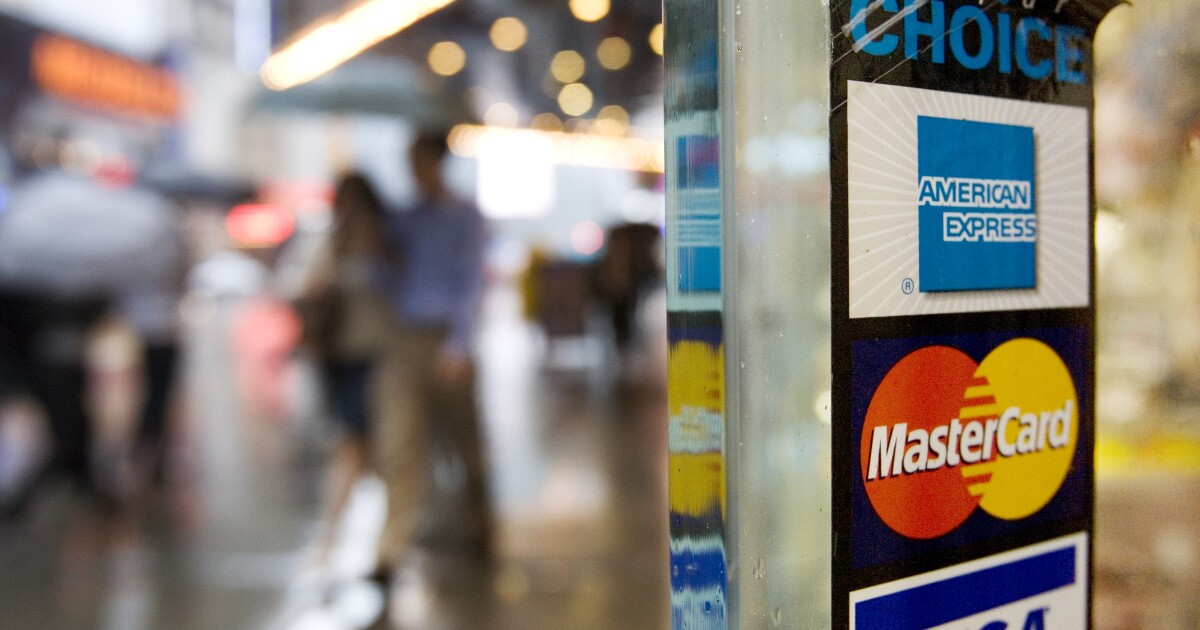

As credit card debt in the United States continues to swell amid unbridled inflation, average annual percentage rates for new credit cards are hitting record highs.
“Credit card interest rates are basically the highest they’ve ever been. I’ve been watching credit card rates on a monthly basis for more than a decade now. And it’s the highest that they’ve been since I’ve been tracking them,” Matt Schulz, the chief credit analyst for LendingTree, told Yahoo Finance.
The average interest rate for credit cards was 20.17%, according to an analysis in June by LendingTree, an internet lending marketplace. June marked the first time the average rate eclipsed 20% since the survey began in 2018, according to the company. The survey reviewed over 200 popular credit cards.
FOURTH OF JULY FAR COSTLIER ONE YEAR AFTER WHITE HOUSE 16-CENT SAVINGS BOAST
The uptick in credit card interest rates coincides with high levels of credit card debt. Recent data from the Federal Reserve found that credit card balances in the U.S. reached $841 billion during the first quarter of 2022, according to CNBC. While lower than record-high levels of $930 billion set in 2019, the recent trend has been upward.
“The troubling truth is that we’re nowhere near where the top is going to be,” Schulz added, per the outlet.
Schulz encourages borrowers struggling with increased rates to consider negotiating with their lenders, according to the outlet.
If debt continues to rise and the Fed continues tightening monetary policy, credit card interest rates could soar even higher.
Credit card debt levels plunged during the pandemic when people began receiving stimulus checks and began consuming less. Traditionally, national credit card debt levels decline during times of economic turmoil such as the pandemic or the Great Recession, according to Schulz.
CLICK HERE TO READ MORE FROM THE WASHINGTON EXAMINER
Some economists fear the country may be headed toward a recession, with some projections indicating the U.S. economy will shrink for a second quarter in a row — which has sometimes been used as the definition for a recession in places such as the United Kingdom.
Since the economy began opening up from the pandemic, America has been mired in an inflation crisis. In May, inflation rates skyrocketed to a 40-year high, prompting the Fed to announce plans to hike the Federal Funds rate by 75 basis points — the highest increase in roughly three decades. The Fed manipulates the federal funds rate to influence rates for other types of loans, such as car loans and mortgages. The theory is that by upping the rate, loans will become more expensive and consumers will borrow less, cooling off red-hot inflation.






